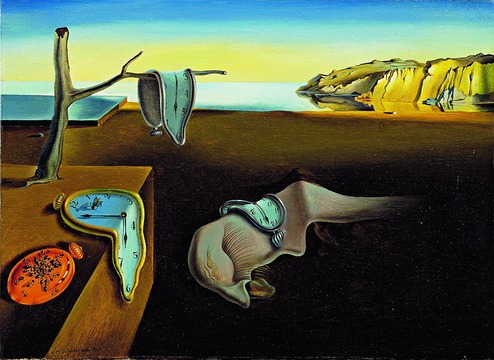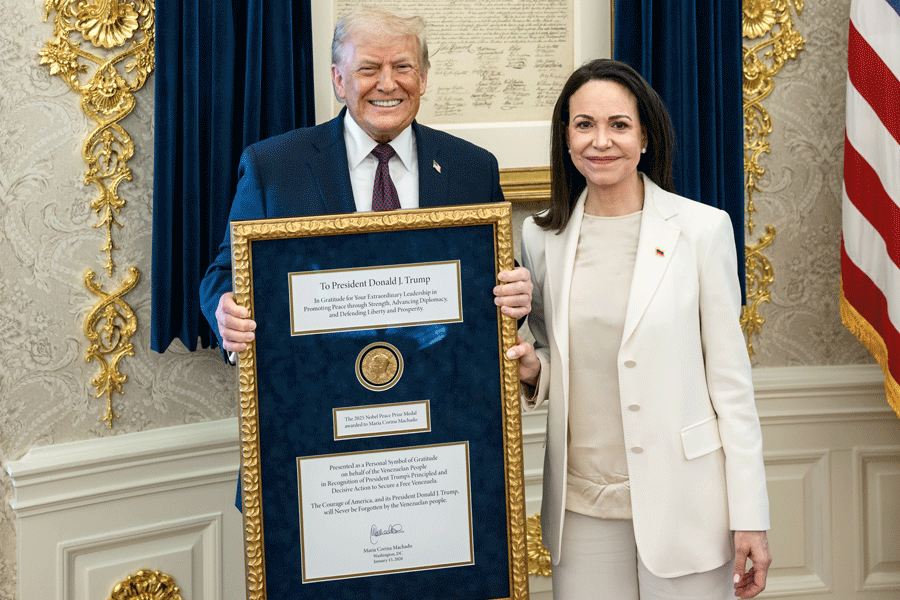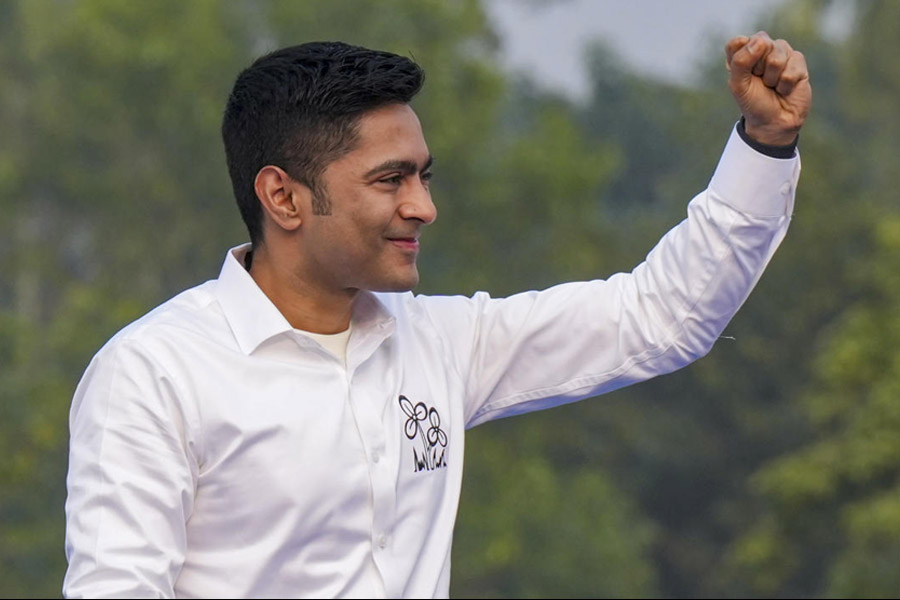
Ever wondered why meetings in the afternoon - say around 2pm - tend to be the toughest ones to get through? Or, why the morning alarm brings a real headache to people who don't get sleepy until 1am? Or why jet lag sets in when we change time zones, making us feel disoriented, foggy, and sleepy at the wrong times of the day?
Blame all of it on the body's inner clock, otherwise known as circadian rhythm ( circum means "around" and dies, "day"). That is what dictates our biological processes - such as sleep patterns - that occur every 24 hours with the cycle of the Sun. It is the biological clock that makes us sleepy as the evening hours wear on, and wakeful as the day begins. In fact, circadian rhythms don't occur only in humans, researchers have identified the same rhythms throughout the living world - in plants, animals, fungi and even cyanobacteria.
Last week three American scientists - Jeffrey C. Hall, Michael Rosbash, and Michael W. Young - were awarded the Nobel Prize in Physiology or Medicine for their discoveries of the molecular mechanisms that control the circadian rhythm. And "for explaining something as fundamental as how plants, animals, and humans adapt their biological rhythm so that it is synchronised with the Earth's revolutions," according to the Nobel committee.
They used fruit flies to isolate a gene that dictates the biological clock ticking away inside all living organisms. Their work, though decades-old, has been crucial to understanding how the light emanating from mobile phones and computer screens can affect the well being of humans and how it is responsible for people getting out of sync with their internal timekeepers.
Scientists and philosophers have been studying the effect of time, especially cycles of the Sun and the Moon, for ages. The field, known as chronobiology, examines periodic (cyclic) phenomena in living organisms and their adaptation to solar - and lunar - related rhythms. The first writings, at least in the Western canon, on diurnal rhythms are from the fourth century BC. Androsthenes described the daily leaf movements of the tamarind tree, Tamarindus indicus, observed on the island of Tylos (now Bahrein) in the Persian Gulf during the marches of Alexander the Great. Much later Darwin, and closer home Jagadis Chandra Bose, mentioned such rhythms in leaf and petal movements.
"The effect of circadian rhythm on our body had been demonstrated by [German behavioural physiologist] Jürgen Aschoff decades ago," says Tushar Kanti Ghosh, former head of physiology department, Calcutta University. "He showed the existence of internal biological clocks, which synchronise biological rhythms. In addition, he found that certain external cues, which he called zeitgebers (synchronisers), influence the timing of these internal clocks," he says. Aschoff also introduced the idea that disrupting one's light-dark cycle can have harmful effects and can cause mental illnesses such as depression.
Following in his footsteps, scientists identified a distinct region in the brain that is charged with keeping time: it is an area called the suprachiasmatic nucleus (or SCN), situated right above the point where the optic nerve fibres cross. This location enables the SCN to receive the cues it needs from light in the environment to help it keep time.
Later, it was found that the pineal gland in the brain synthesises and secretes melatonin, a structurally simple hormone that communicates information about environmental lighting to various parts of the body. Ultimately, melatonin has the ability to entrain or synchronise biological rhythms and has important effects on the reproductive function of many animals. Melatonin is usually secreted at night when you sleep. "This is why melatonin supplements are sometimes used to treat jet lag or sleep problems," says Ghosh.
It was only in 1984, however, that Hall, Rosbash, and Young identified a gene that seemed to control circadian rhythm. Working with fruit flies, they discovered that insects lacking this gene did not seem to have a biological clock and lost the ability to regulate their sleep pattern, for example. Replacing the gene gave them their groove back. Further investigations revealed that this gene encodes a protein that accumulates at night and degrades during the day. Eventually, the three scientists mapped a group of proteins that work together to control the 24-hour rhythm, including one that allows light to influence it.
The molecular mechanisms behind sleep and wakefulness, and their links to light exposure, helped establish the backbone of sleep science. People now know that when you change the timing of that exposure - by, say, travelling to a new time zone or being exposed to light from a screen (television, computer or smartphone) - you mess with your internal body clock. You feel groggy when you should feel awake, and vice versa. In recent years, health and wellness app and device developers have emerged to help people re-synchronise their circadian alignments. Some train you to turn off your phone a few hours before bedtime.
"The 24 hour internal behavioural clock is what most organisms (from insects to mammals) use to prepare for vital life functions, without waiting for environmental time cues," says Koustubh Panda, head of genetic engineering at Calcutta University. "This apparently dictates our energy, mood, socialising and sexual behaviours over a 24 hour cycle." The body clock does not have to understand that it is night outside to trigger your sleep cycle, it is an intrinsic behaviour control mechanism.
Understanding circadian rhythm has had a positive impact on healthcare. We now know that the time you pop a pill is as important as its dosage. Research on the body clock has shown that the drug to control cholesterol should be taken at night because levels of the enzyme it targets are highest then. The same is true of blood pressure medication.
The Nobel committee chair called Rosbash about 5am local time to tell him that he had won. "I am very pleased for the fruit fly," he said. "When the landline rings at that hour, normally it is because someone died."










